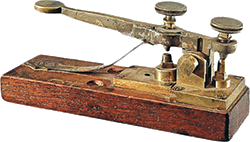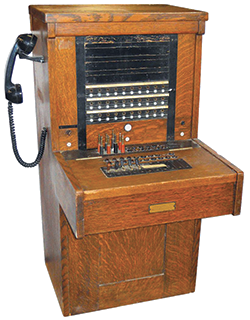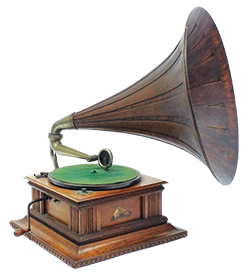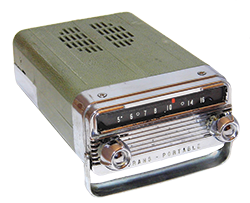
After the Egyptian god Thoth invented letter writing, Socrates relates in Plato’s Phaedrus, the reigning pharaoh was dismayed. “Your invention will produce forgetfulness in the souls of those who have learned it,” he told the god. “To your students you give an appearance of wisdom, not the reality of it. Thanks to you they will hear many things without being taught them and will appear to know much when for the most part they know nothing.”

Pliny the Elder lamented in his Natural History that iron is “the most precious and at the same time the worst metal for mankind” due to its diversity of uses. “This metal,” he continued, “serves also for war, murder, and robbery, and not only at close quarters, man-to-man, but also by projection and flight, for it can be hurled either by ballistic machines or by the strength of human arms or even in the form of arrows. And this I hold to be the most blameworthy product of the human mind.”

“We are in great haste to construct a magnetic telegraph from Maine to Texas, but Maine and Texas, it may be, have nothing important to communicate,” wrote Henry David Thoreau in his 1854 book Walden.“We are eager to tunnel under the Atlantic and bring the Old World some weeks nearer to the New, but perchance the first news that will leak through into the broad, flapping American ear will be that the Princess Adelaide has the whooping cough.”

In an 1892 edition of Neapolitan newspaper Il Mattino, Italian novelist Matilde Serao warned of telephone switchboard operators: “Who will free these lasses from their neurosis? Heed their voice when they answer you on the telephone! It is broken: it is the voice of impatience...They seem to be dogged by a profound and secret misgiving that sometimes explodes.”

Regarding himself “quite willing to be reckoned an alarmist,” the composer John Philip Sousa wrote a 1906 polemic against the phonograph. “These talking and playing machines,” he complained, “reduce the expression of music to a mathematical system of megaphones, wheels, cogs, disks, cylinders, and all manner of revolving things, which are as like real art as the marble statue of Eve is like her beautiful, living, breathing daughters.”

“It takes no great imagination,” an unnamed traffic authority told the New York Times in 1930, to picture the chaos car radios might unleash. “The driver needs his eyes and ears to drive with and should not be subject to any temptation in the way of radio distraction. Music in the car might make him miss hearing the horn of an approaching automobile or fire or ambulance siren. Imagine fifty automobiles in a city street broadcasting a football game!”

“The Walkman is replacing certain drugs as a mind- and mood-altering device,” wrote Chicago Tribune columnist Bob Greene in 1981. “When teenagers have reached the point where they feel they must shut out the sounds of the Ohio State Fair, society is surely ready to collapse.”

“We should be very careful about artificial intelligence,” said technology entrepreneur Elon Musk at a 2014 symposium. “If I were to guess at what our biggest existential threat is, it’s probably that...With artificial intelligence, we are summoning the demon.” Earlier that year, Musk had tweeted that AI was “potentially more dangerous than nukes.”